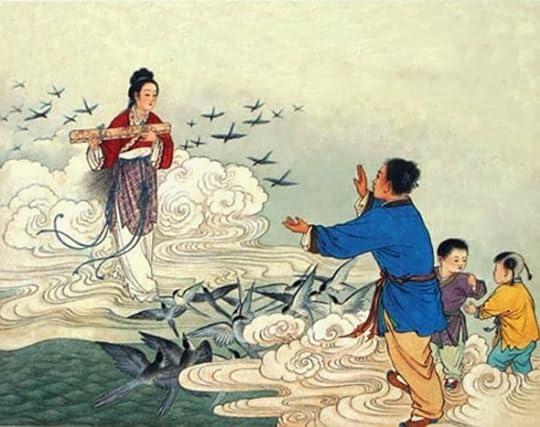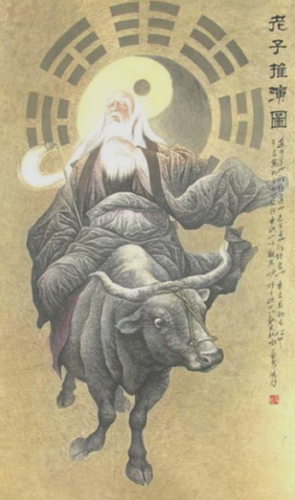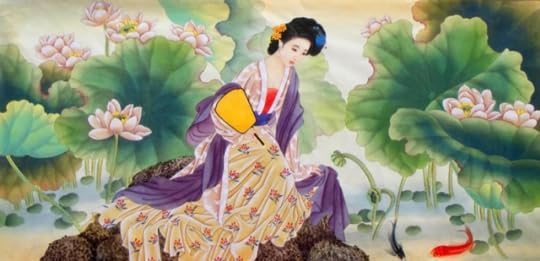What do you think?
Rate this book


278 pages, Mass Market Paperback
First published April 1, 1984

His hands shot out, a blade glinted, blood spurted and he calmly dropped the thug's earring into his pocket, along with the ear that was attached to it. "My surname is Li and my personal name is Kao, and there is a slight flaw in my character," he said with a polite bow. "This is my esteemed client, Number Ten Ox, who is about to strike you over the head with a blunt object."
I wasn't quite sure what a blunt object was, but I was spared the embarrassment of asking when the thug sat down at a table and began to cry.
"I'd do it myself if I were ninety, but it appears that Lotus Cloud will be your department. You may console youself with the thought the most expensive woman in the world is likely to be the most beautiful"
"Master Li, I shall do my duty," I said bravely.
"Any last words?" asked the sergeant at arms.
I was only Number Ten Ox, so I lifted my head to [redacted]. "I hope I splatted blood all over you, you son of a sow!" I yelled. Oddly enough I felt much better, and I stopped gagging at the thick sweet smell of blood.
We... gazed down a hundred feet of sheer cliff... at an angry sea where waves smashed against jagged rocks that lifted through the foam like teeth. There was one small calm pool almost directly beneath us, but for all I knew it was six inches deep...
"My life has been rather hectic, and I could use a long rest," [Master Li] sighed. "When I get to Hell to be judged, I intend to ask the Yama Kings to let me be reborn as a three-toed sloth. Do you have any preference?"
I thought about it. "A cloud," I said shyly.
...I perched on the edge and took aim.
"Farewell, sloth."
"Farewell, cloud."
I held my nose and jumped.
"What are you doing?" cried Pretty Ping.
"I am undressing," I said, because I had been well brought up and I would never dream of contradicting so venerable a sage as Li Kao. Besides, I had been told to obey him by the abbot, who was praying for my soul.
"I shall scream!" cried Pretty Ping.
"I sincerely hope so. Ah, if I could only beninety again," Master Li said nostalgically. "Ox, flex a few muscles for the young lady."
Pretty Ping stared at me, as Li Kao turned and trotted back down the stairs... Her luscious lips parted. "Help," said Pretty Ping.
Lady Wu, whose beauty was said to rival that of the semi-legendary Queen Feiyen, was carried into the bushes by a creature who had no ears or nose, and whose eyes were as yellow as his teeth.
We all have our little weaknesses, but I must question the judgment of Cut-Off-Their-Balls Wang when he abandoned his fellow hooded monks to disport in the bushes with Lady Wu. He missed a great deal of excitement.
"I chopped [my wife] into pieces, and then I chopped her seven fat sisters to pieces. It was delightful," said Henpecked Ho. "Then I came here to try to chop the Ancestress to pieces, but her soldiers caught me first. Oh well, I suppose that one can’t have everything.
"Ho, you did splendidly!" Master Li said.
This is a fellow who arranged things so that anyone who went after him would have to wander through the landscape of a homicidal fairy tale, which makes no sense if you think of him as a great and powerful ruler, but which makes perfect sense if you think of him as he once was: a cowardly little boy lying in bed at night, staring in terror at every noise and seeing monsters in every shadow. He grew older, but it can scarcely be said that he grew up, because he was so frightened at the thought of death that he was willing to commit any crime, and even to lose his heart if it would keep him from the Great Wheel of Transmigrations.
"Don't be ashamed of reliving your childhood, Ox, because all of us must do it now and again in order to maintain our sanity".

" 'Take a large bowl,' I said. 'Fill it with equal measures of fact, fantasy, history, mythology, science, superstition, logic, and lunacy. Darken the mixture with bitter tears, brighten it with howls of laughter, toss in three thousand years of civilization, bellow kan pei—which means 'dry cup'—and drink to the dregs.'
Procopius stared at me. 'And will I be wise?' he asked.
'Better,' I said. 'You will be Chinese.' "
"... I hugged a few dogs as I solemnly chanted the sacred vow of the Seven Bloody Bandits of the Dragon Bones Cave.
'Bat shit, rat shit, three-toed sloth shit, bones and blades and bloody oath writ—'
'Now that has real merit,' A voice said approvingly. 'It beats the scholar's oath by a mile and a half.' "

"Night rain is falling on the village of Ku-Fu, glinting through moonbeams that slide through thin clouds, and the soft splashing sound outside my window blends with the drip of ink from the mouse-whiskered tip of my writing brush."

“My surname is Li and my personal name is Kao, and there is a slight flaw in my character.”